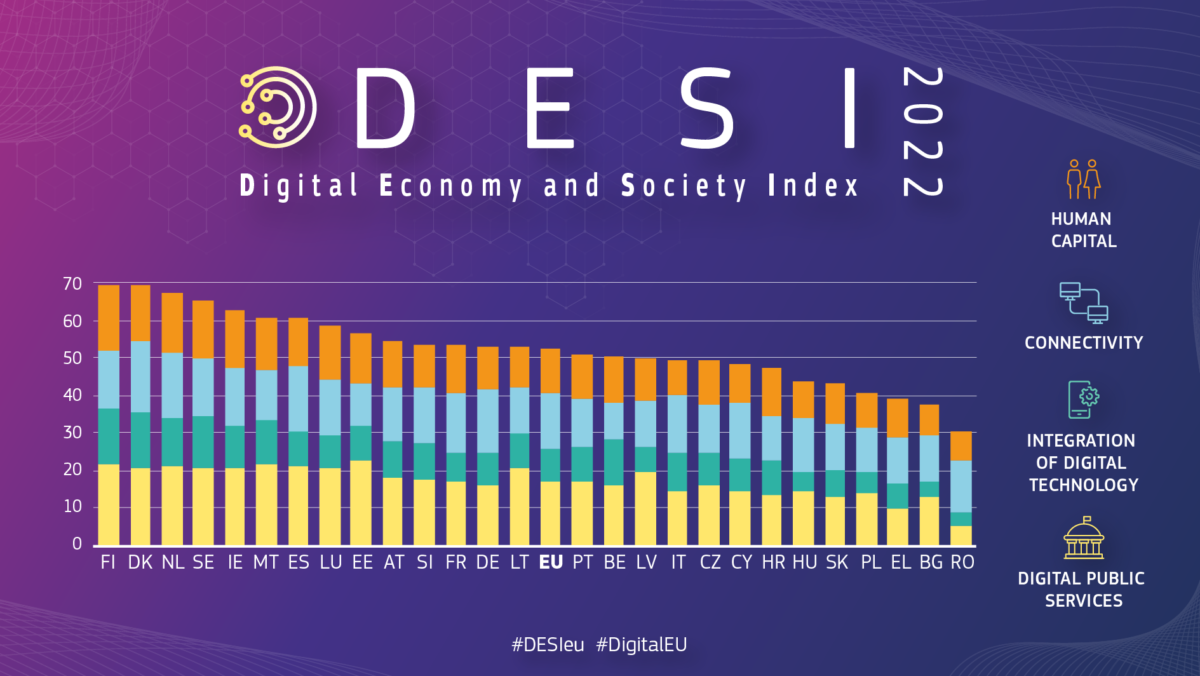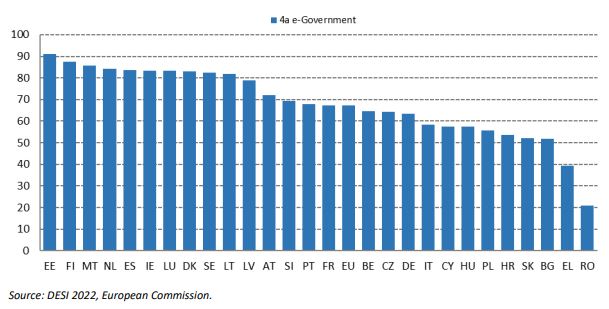Malta compares well to the rest of the European Union in the availability and use of digital services, leading in a number of areas and ranking sixth overall in the Digital Economy and Society Index (DESI) 2022.

DESI summarises indicators on Europe’s digital performance and tracks the progress of EU countries. This year’s report, largely based on 2021 data, notes that although members states advanced their digitalisation efforts due to the COVID-19 pandemic, they still struggle to close the gaps in digital skills, the digital transformation of SMEs, and the roll-out of advanced 5G networks.

Overall, Malta emerges as a clear front-runner in the digital revolution, having among the highest scores of digital public services for both households and businesses, the use of ecommerce, user centricity, and transparency of service.
Meanwhile, almost a third of Malta-based enterprises analyse big data. The Netherlands and Denmark follow closely behind, with 27 per cent. At the other end of the spectrum, only between five and six per cent of enterprises in Romania, Slovakia, Cyprus, and Bulgaria analyse big data.

The report references European Code Week, a European-Commission grassroots initiative that the European Commission supports bringing coding and digital literacy to everyone in a fun and engaging way with activities organised around the world by teachers and coding enthusiasts.
In terms of the number of activities organised, in 2021, Malta topped the scoreboard as the EU country with the most activities relative to its size (whereas Monaco was number one overall). In 2022 so far, it leads among the countries participating.
The upcoming 10th edition of Code Week will take place between 8th and 23rd October 2022
When it comes to women in tech, Malta is still better than the EU average, though not quite as much.
As part of these efforts, the EU has put significant resources on the table to support the digital transformation, with €127 dedicated to digital reforms and investments in the national Recovery and Resilience Plans.
Member states dedicated on average 26 per cent of their Recovery and Resilience Facility (RRF) allocation to the digital transformation, above the compulsory 20 per cent threshold.
Taking to LinkedIn, Malta Digital Innovation Authority CEO Kenneth Brincat hailed the “excellent results”, noting that “high acclaim” was reserved for initiatives led by the authority, especially developments in the AI space.
Two years since its birth, Moneybase features on Microsoft’s Customer Stories
Moneybase has now just been featured on Microsoft’s latest Customer Stories
Finance Minister confirms continuity of food and energy subsidies
Spending on food and energy subsidies as a percentage of the GDP will be at 0.7% in 2025
MHRA congratulates Glenn Micallef on EU role, highlights positive impact on Malta’s tourism and cultural sectors
The lobby group emphasised that Malta’s cultural assets and sports scene are key factors in attracting visitors and fostering economic ...







